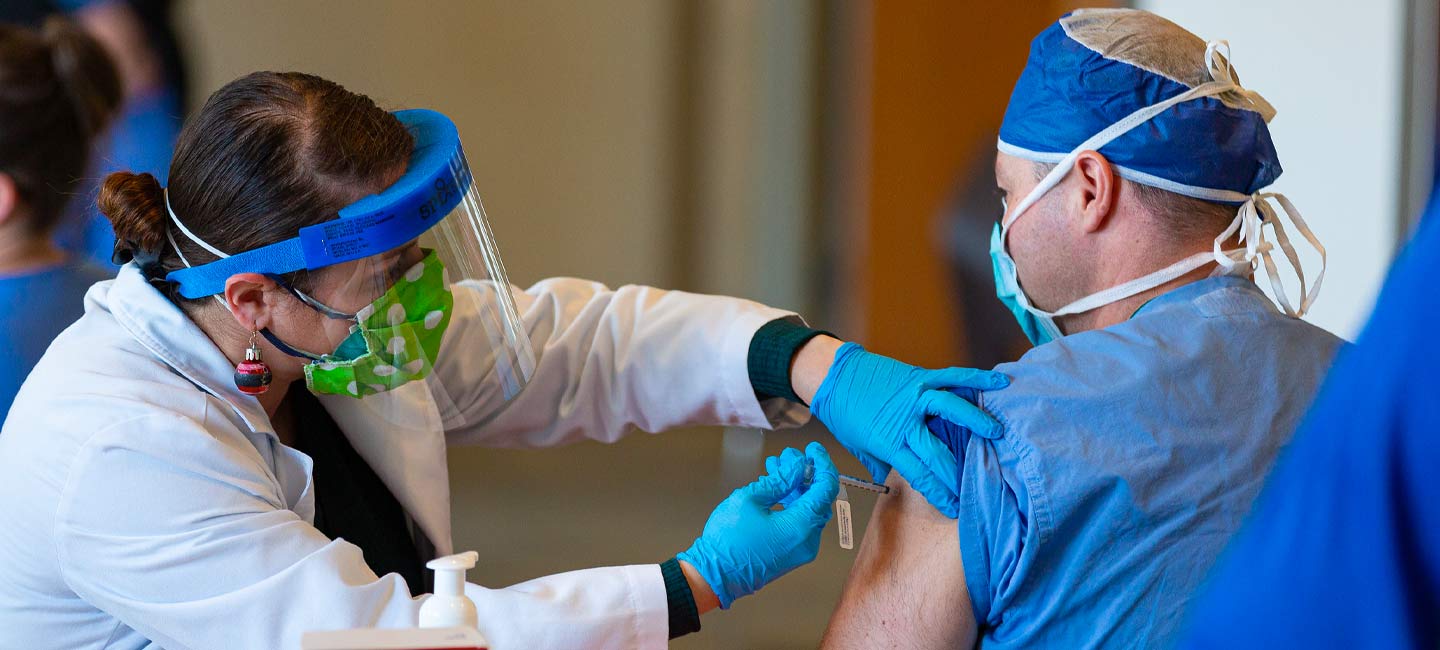FDA Recommends Moderna and J&J COVID-19 Vaccine Boosters
A U.S. Food and Drug Administration committee voted unanimously to recommend emergency use authorization of a booster dose of Moderna's COVID-19 vaccine Thursday.
The committee agreed use of a booster dose would be safe and effective in certain groups six months after their second dose. The eligible groups are people age 65 and older, people ages 18 to 64 who are at high risk of severe COVID-19 and people ages 18 to 64 whose exposure to the virus in their settings or workplace put them at risk for complications or severe illness.
That same committee also recommended boosters of the Johnson & Johnson's single shot COVID-19 vaccine. The recommendation is for a booster to everyone 18 and over who's already received the first shot at least two months after the initial dose.
Third doses of the Moderna and Pfizer COVID-19 vaccines are already authorized for some immunocompromised people.

Dr. John Greene, Infectious Diseases Program
“Getting the booster is a good thing,” said Dr. John Greene, chair of the Infectious Diseases Program at Moffitt Cancer Center. “Having higher antibodies is good and it will logically prevent infections and lower the chances of another emerging epidemic.”
The 50-microgram booster dose is half the size of the 100-microgram doses used in the first two doses in the primary vaccine series.
The FDA recommendation comes days after study results were published suggesting that mixing and matching vaccination doses from different manufacturers is safe and effective.
The National Institutes of Health study has yet to be peer reviewed, but found that people who received the Johnson & Johnson vaccine produced stronger antibody levels after they got booster shots made by Moderna or Pfizer, compared to boosters from Johnson & Johnson.
“If you got the Johnson & Johnson vaccine, the number of antibodies you have is quite low compared to the mRNA vaccines in Moderna and Pfizer,” said Greene. “I think it’s great news that mixing and matching a Johnson & Johnson vaccine with an mRNA vaccine may be more effective. If it works, anything that boosts your antibody response is going to make you safer and prevent infection.”
Researchers looked at the antibody levels of 458 volunteers two weeks and four weeks after the boosters were administered. The booster shots were given four to six months after the original vaccinations.
Antibody levels in people who were originally vaccinated with Johnson & Johnson’s single shot vaccine were about five times higher after they received matching Johnson & Johnson boosters. People who originally received Johnson & Johnson’s vaccine who were then given boosters of either the Pfizer or Moderna vaccines had significantly stronger immune responses. Some antibody levels were found to be more than 50 times higher after the Moderna booster.
Researchers say that people who were originally vaccinated with the Pfizer or Moderna vaccines and received the other company’s booster shot produced similarly strong immune responses.
The findings will be presented to the FDA’s advisory committee.



